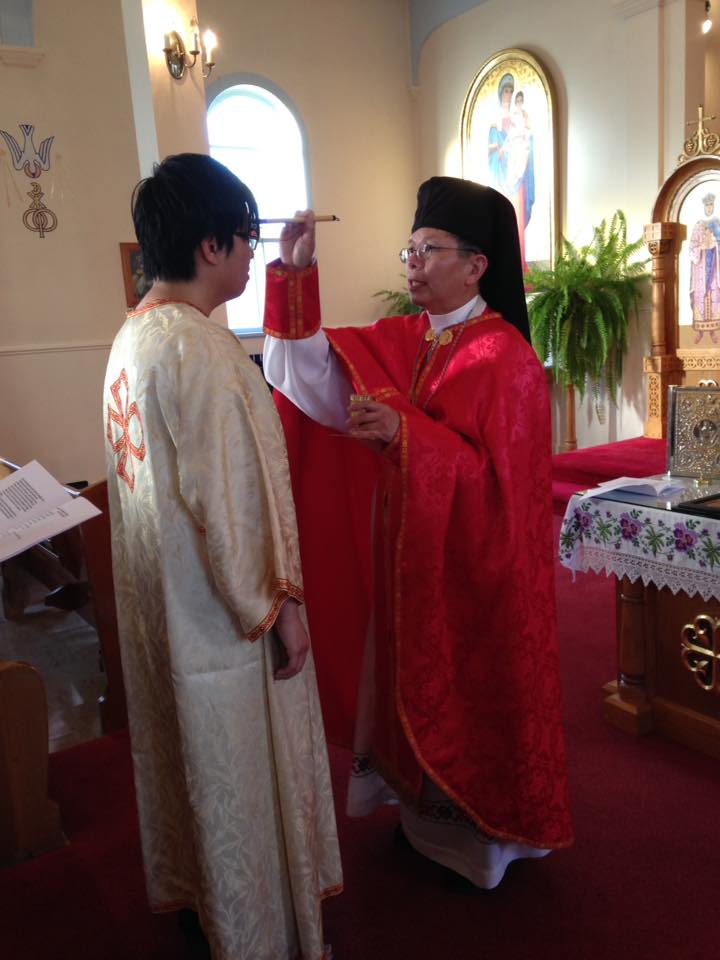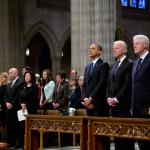
Early on in my catechumenate, my spiritual father told me about the Kyivan Church Study Group. Shortly before the Soviet Union dissolved, the Ukrainian Greco-Catholic Church had come out of the catacombs, much to the chagrin of the Moscow Patriarchate that had liquidated us about fifty years before at the Pseudo-Sobor of Lviv. The consternation was real because the Greek Catholics reclaimed a number of temples that the Orthodox had claimed before. No one had counted on there being millions of Greek Catholics still left in Ukraine. They were supposed to have been extinct, supposedly kept alive only as a distant memory by wishful thinkers in the diaspora.
Around this time, the See of Rome was having a series of dialogues with the Orthodox, including the Moscow Patriarchate. One of the problems that came up was the problem of the ‘uniates,’ the name that Eastern Catholics are pejoratively called as an epithet by the Orthodox who accuse us of selling out to Rome and having our traditions ‘latinized’ beyond recognition. The problem, my spiritual father pointed out, is that we weren’t part of those dialogues; they were being had about us and for us, but not with us. That made us feel acutely our status as ‘children of divorce,’ as my spiritual father put it. Rome and Constantinople had indeed had a divorce in 1054, and the establishment of Moscow as an autocephalous church opposed to the Union of Florence in the fifteenth century had crystallized this separation. As those who had received the Constantinopolitan tradition with a consciousness of communion with Rome, we were stuck. What do we do when mom and dad get a divorce?
But my spiritual father continued the story: just because our parents had a divorce doesn’t mean that the children can’t play together. We wanted to see whether we could have our own dialogue with the Orthodox, perhaps even to establish double communion with the Orthodox, as the Melkite Archbishop Elias Zoghby had put it: keeping our communion with Rome while entering into communion with an Orthodox church. As the history books had it, our union with Rome in 1598 in the city of Brest split us from our mother church of Constantinople, not Moscow. In fact, over the next four hundred years, the local church of Kyiv was split four ways: us (the UGCC), the Ukrainian Orthodox Church-Moscow Patriarchate, the Ukrainian Autocephalous Orthodox Church, and the Ukrainian Orthodox Church-Kyiv Patriarchate.
And so the Kyivan Church Study Group was born. It was a group of scholars from the UGCC and the Ecumenical Patriarchate of Constantinople that met in the early 1990s to discuss what re-establishing communion might look like. Nothing ever worked out, though the proceedings are all available in back issues of Logos: A Journal of Eastern Christian Studies (though as is typical in our beautifully chaotic church, folks I’ve talked to seem to have trouble locating their copies of these old issues). The people in those lineups were no small potatoes. Representing the Kyivan Church are some of the heavyweights of our church: Andriy Chirovsky, Borys Gudziak, Peter Galadza, Andrew Onuferko, Myroslaw Tartaryn, Serge Kelleher. The same goes for the Ecumenical Patriarchate: Kallistos Ware, Ephrem Lash, Vsevolod (Majdansky) of Scopelos. When I did some research, I found that Fr Andriy Chirovsky and the Ukrainian Catholic Patriarchal Magazine’s founder Roma Hayda also wrote about it in Ukrainian Weekly, confirming the whole story my spiritual father told (see pp. 9-10 of the pdf). I could never have expected that shortly after my chrismation, Roma’s grandson Julian would become such a ‘good brother’ of mine (as we say in Cantonese) in the group I facetiously refer to as the Kyivan Psychoanalysis Study Group. It must be because of our self-proclaimed existence that some people think of us as a ‘growing number.’ It is of course to our advantage for us to let them think that we are growing in number by the day; without their opposition, we would lose comedic fodder for our convivial meetings. As people who know about Fr Andriy’s health situation and are broadly sympathetic to the Kyivan Church Study Group’s aims, we are also praying for his speedy recovery.
I was very intrigued by the ‘children of divorce’ analogy to describe the Kyivan Church Study Group and asked a number of questions about it. Sensing my excitement, my spiritual father dove into the history and its politics, outlining for me what I needed to know about the Kyivan Church as it is often thrown as a political football among Rome, Constantinople, and Moscow. I was excited indeed: if we were children of divorce, then wasn’t this Kyivan Church Study Group and its dialogue about double communion with Constantinople nothing short of The Parent Trap? Doesn’t this rhetoric mean that the Zoghby Initiative is far from dead? And wouldn’t this explain why our churches are always so disorganized and chaotic? I mean, if we are The Parent Trap, doesn’t that make us the ecclesial Lindsay Lohan?
After two hours of spirited conversation, my spiritual father sat back and looked at me. He then proclaimed: Politics is very close to your soul.
It was then my turn to sit back. Just the week before, I had gotten into a bit of a skirmish with some of the members of my temple in Richmond. I had been unclear about the politics but enthusiastic about the vision of double communion that my spiritual father had referred to in passing; this is a common vice for anyone learning things at an introductory level. I had proclaimed this conviction as a driving force for why I wanted to enter into the church, although looking back, there is no way I could have been sure what it even was that I was talking about.
My inspiration was met at best by some with apathy. Some of the people in my temple, especially the ones who had not been drawn in as I was by solidarity with Hong Kong’s Umbrella Movement, couldn’t see the connection between church politics and Christian spirituality. Of course, those who had come in because the Umbrella Movement understood perfectly what I was driving at and why I was so excited about it. But for the apolitical people who also come to our temple, my enthusiasm raised a number of worrisome questions. Why was I talking about dirty politics when I should be focusing on prayer and getting closer with God? Why couldn’t I just let the people who knew what was going on take care of these large-scale ecclesial matters and just attend church in peace? Why did I care so much about politics?
The truth is that I asked all those questions at the catechumenate session to get some clarity as to what I might have missed in my temple politics skirmish. When my spiritual father sat back, I felt a little bad. It turns out that it really was all about me. I needed to know all of this for me. I had a compulsion to know.
And that was where the Lord met me in his mercy. There my spiritual father was, telling me that the reason I cared so much about politics was because it was close to my soul. I admitted to him that I really had gotten into a fight with church people about this, thinking I’d be reprimanded for my lack of prudence. But he did not. He simply smiled and said that maybe other people encounter the Lord differently. For my part, I just have to know that this way – politics – is how I meet Jesus and experience his mercy. Each person in G-d’s economia has their own vocation. Perhaps they did not understand my passion because they were not me. Maybe I should be patient with them because I am not them. It might be that this is why we are called to love each other: we are different people worshipping our Lord and invoking his mercy together. Not only was it true that I had a compulsion to find out all this stuff about the Kyivan Church Study Group because it was I who needed to know, but also that was perfectly fine, because politics is close to my soul. It’s food for my soul. Deprive me of it, and I will wither and die.
I thought about this and have come to concur. In fact, the Holy Spirit soon gave confirmation to the truth behind this conversation: in a matter of weeks after this discussion, one of those apolitical people was assigned to read the life of St Mary of Egypt during the Great Canon of St Andrew of Crete. To this day, when I read or hear the hagiography, I cannot but hear it in her voice. We are different, but it is because of that that I can call her my sister. I am not her, and she is not me. The mirror is broken.
I have pondered this conversation for quite some time. Not only did I get a crash course on the Kyivan Church Study Group and the actual politics of the church into which I was received, but I also got a lesson in how thinking about church politics – that supposedly dirty topic that most people avoid for fear of spiritual contamination – is the avenue by which I have usually grown in prayer. In fact, isn’t it true that my co-existence as a person who is hyper-conscious of politics with those who don’t give a damn a kind of church politics itself? Aren’t we working out our common life together, debating about the common good in an agonistic way because we love each other? Doesn’t our struggle to have conversations across such different ways of seeing the spiritual order lead to the conscientization by which we find liberation as active agents in making history in the world? Is this not politics – the church as polis working out our salvation in fear and trembling?
I return to this dialogue especially when the Great Fast rolls around, a time when I am supposed to be reliving my catechumenate. Last year, a major point of my contemplations revolved around the leftover baggage I had from having been formed in Protestant Christian communities. But this year, I find myself thinking a lot about politics and psychoanalysis, connections that are close to my soul. These topics are of course not new to me: I even wrote about church politics as a vehicle for spiritual growth as an Anglican. But in my catechumenate they were transfigured. Perhaps this Great Fast, part of what I ponder should be on the nature of this transfiguration. Maybe it will lead to new insights that I have not previously considered, connections and corrections to my former Anglicanism to which I may even now be blind. It might even lead me, a self-proclaimed member of the self-styled Kyivan Psychoanalysis Study Group, to a deeper appreciation of what the Kyivan Church Study Group was trying to accomplish.












